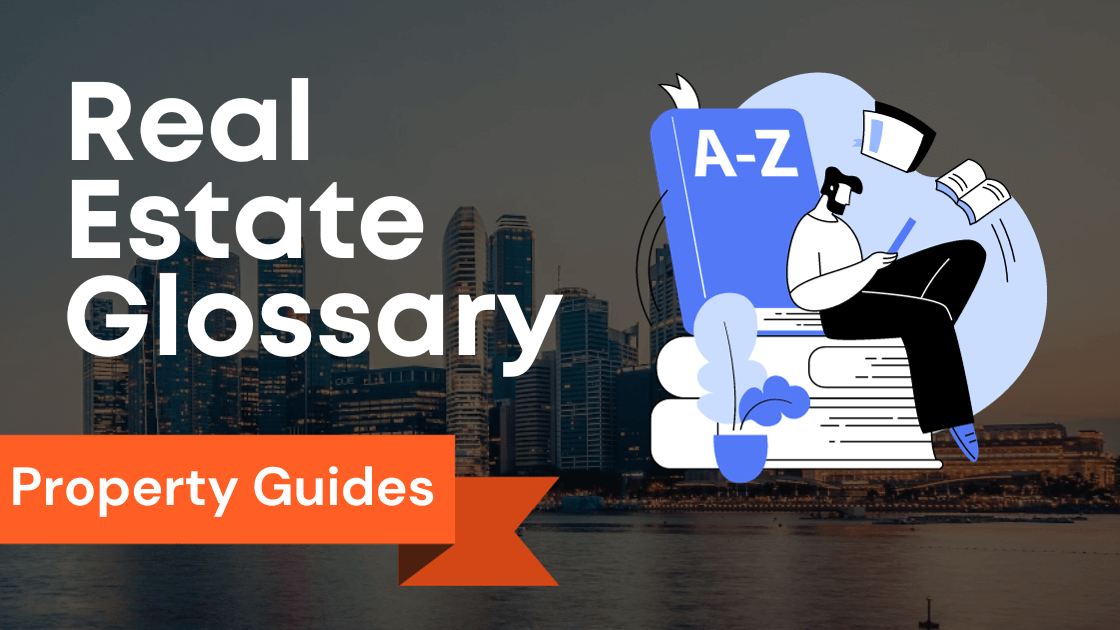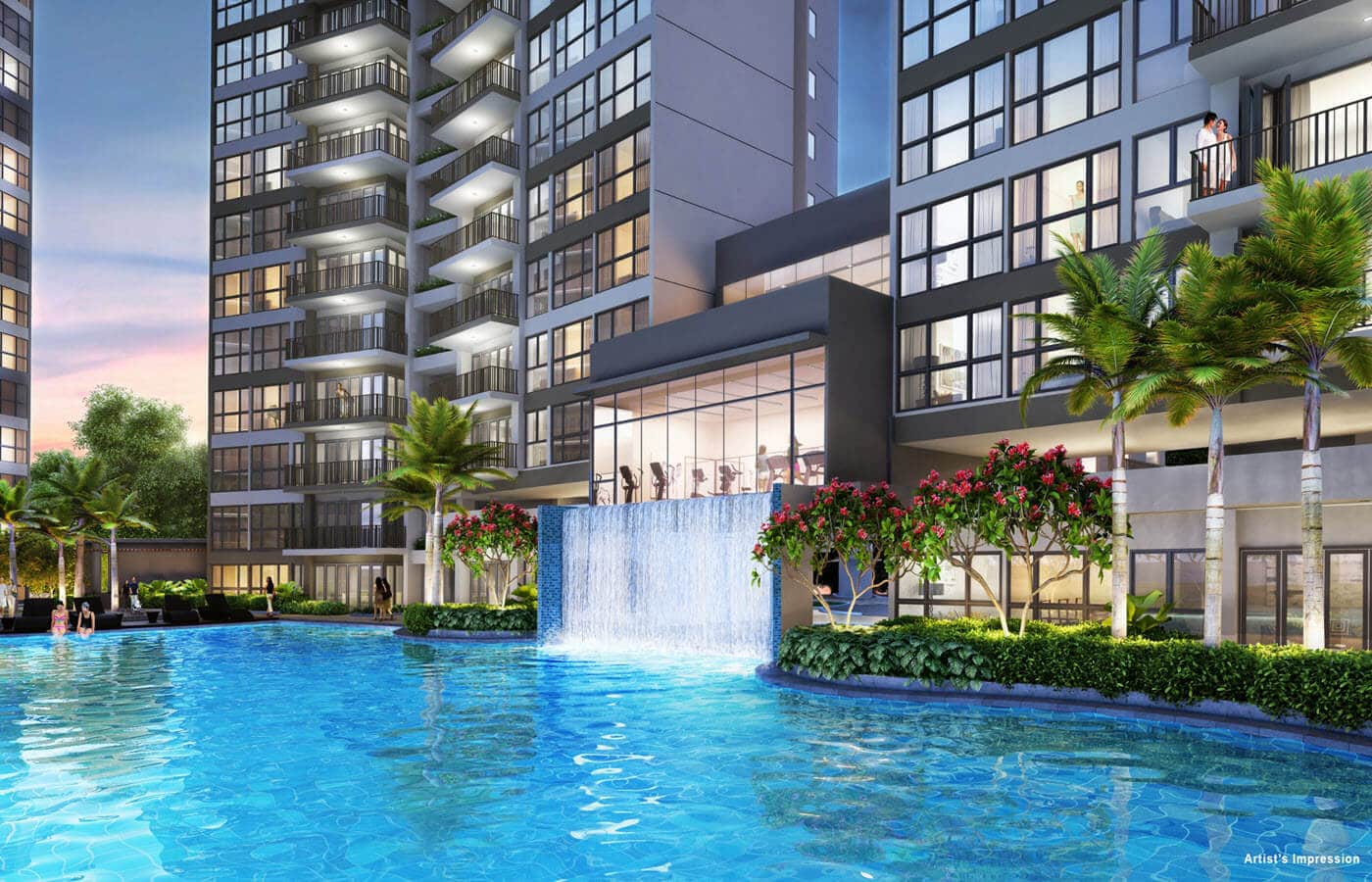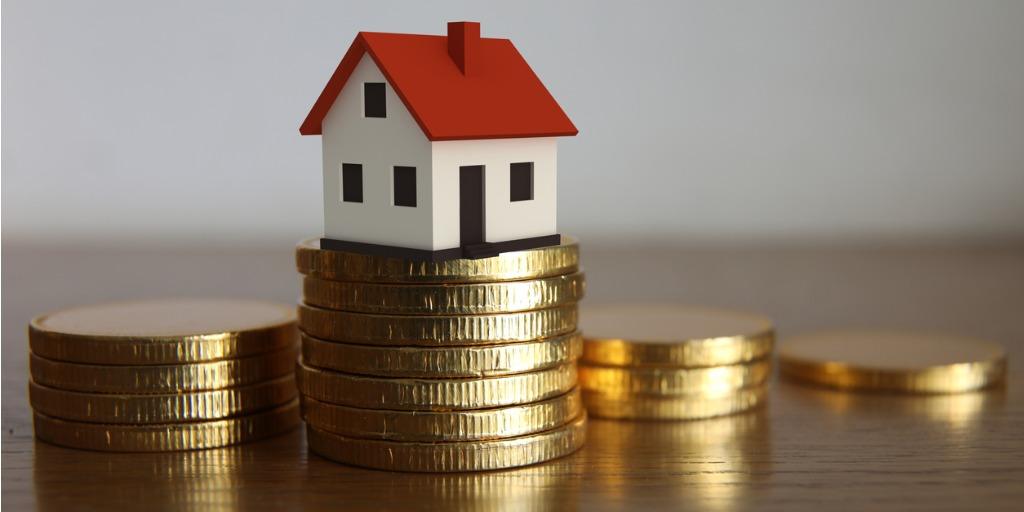
In this article, we’ll break down the key differences between hdb loan vs bank loan and help you make an informed decision.
From interest rates and eligibility criteria to loan amounts and repayment terms, we’ll explore everything you need to know to find the best fit for your financial situation.
Whether you’re a first-time homebuyer or looking to refinance, understanding these loan options is essential for a successful home purchase.
Key Takeaways
| Key Takeaway | HDB Loans | Bank Loans |
|---|---|---|
| Purpose of loan | Purchase of HDB flat | Purchase of HDB flat, private property, resale HDB flat |
| Interest rates | Generally lower | Varies and can be higher or lower depending on the package |
| Eligibility criteria | Singapore citizens only | Open to foreigners, permanent residents, and Singapore citizens |
| Loan amount | Generally higher | Lower, but income requirements may be lower as well |
| Loan tenure | Maximum of 25 years | Up to 35 years (varies between banks) |
| Use of property restrictions | Restrictions on renting out an entire flat | No specific restrictions |
| Lock-in period and prepayment penalty | No lock-in period, no prepayment penalty | Lock-in period with a potential prepayment penalty |
| Interest rate calculation | Fixed-rate pegged to CPF Ordinary Account rate | Market-based rates (SIBOR, SORA) |
| Credit score impact | Less impact on interest rate | Affects interest rates and the likelihood of approval |
| Monthly installments and repayment terms | Fixed monthly installments | Variable monthly installments |
| Refinancing options | Can refinance to a bank loan with eligibility requirements | Can refinance to HDB loan with eligibility requirements |
| Pros and cons | Lower interest rates, early repayment flexibility, restrictions on the use | More flexibility, competitive rates, potentially higher costs, and risks |
Understanding the Difference Between HDB Loans and Bank Loans

What is an HDB loan?
HDB loans are housing loans provided by the Housing and Development Board (HDB).
These loans are designed to help Singaporeans purchase an HDB flat.
What is a bank loan?
Bank loans, on the other hand, are housing loans provided by a bank or financial institution.
While you can use a bank loan to purchase a flat from HDB, you can also use it to purchase private property or a resale HDB flat.
How are HDB loans and bank loans different?
The key difference between HDB loans and bank loans is that HDB loans are only available for purchasing an HDB flat whereas bank loans can be used for multiple purposes.
Additionally, HDB loans generally offer lower interest rates than bank loans, but come with restrictions on the use of the property.
Factors to Consider When Choosing Between HDB Loan and Bank Loan
Interest rates: A key factor in HDB loan vs bank
loan decision
One of the key factors to consider when choosing between an HDB loan and a bank loan is the interest rate.
Generally, HDB loans offer lower interest rates than bank loans, which can translate to significant cost savings in the long run.
However, it’s important to compare interest rates for both options and choose the one that offers the lower interest rate based on your loan amount and tenure.
Eligibility criteria for HDB loans and bank loans
Another factor to consider is the eligibility criteria for both financing options.
HDB loans have stricter eligibility criteria than bank loans and are only available to Singapore citizens.
Bank loans, on the other hand, have more relaxed eligibility criteria and are available to foreigners, permanent residents, and Singapore citizens.
Loan amount: HDB loan vs bank loan options
The loan amount is another important factor, as HDB vs bank loans have different loan limits.
HDB loans generally offer a higher loan amount than bank loans, but you’ll need a higher income to qualify for it.
Loan Tenure: How HDB Loans and Bank Loans Differ

What is the maximum loan tenure for HDB loans?
The maximum loan tenure for HDB loans is 25 years, subject to the borrower’s age and the remaining lease of the HDB flat.
What is the maximum loan tenure for bank loans?
The maximum loan tenure for bank loans varies between banks, but it’s usually up to 35 years.
How do the loan tenures affect your monthly payments?
The loan tenure affects your monthly repayments, as longer tenure means smaller monthly payments and a higher interest cost over the loan period.
A shorter tenure, on the other hand, means larger monthly payments but lower interest costs over the loan period.
Pros and Cons of Opting for an HDB Loan
Lower interest rate for HDB loans
As mentioned earlier, HDB loans generally offer lower interest rates than bank loans, which can translate to significant savings over the loan period.
HDB loans come with restrictions on the use of the property
One of the drawbacks of opting for an HDB loan is that there are restrictions on the use of the property.
For instance, you’re not allowed to rent out the entire flat if you’re taking an HDB loan.
Repay your HDB loan early without penalty
Finally, if you choose an HDB loan, you’re allowed to repay your loan early without penalty, which gives you more flexibility in managing your finances.
In conclusion, choosing between an HDB loan and a bank loan is a decision that depends on various factors.
By understanding the key characteristics of both financing options and comparing them based on your needs and financial situation, you can make an informed decision and choose the one that’s best for you.
Pros and Cons of Opting for a Bank Loan

Understanding the Interest Rates and Charges of a Bank
Loan
One of the significant advantages of taking a bank loan is that banks offer lower interest rates than HDB.
Banks calculate the interest rate based on SIBOR or SOR rates, which are market-based, resulting in competitive rates.
However, banks may charge a higher interest rate for those with a high loan-to-value (LTV) ratio, higher down payment, and other requirements.
Also, banks usually have a lock-in period that lasts between two to five years, where a prepayment penalty is charged if the loan is paid off prematurely.
Impact of Credit Score on Approval of Bank Loan
Your credit score plays a significant role in the approval process of bank loans.
Banks require a minimum credit score of 600 to qualify since it communicates your creditworthiness and future repayment ability.
A high credit score increases your likelihood of approval, but it also affects the interest rate banks offer.
A low credit score indicates a high risk to the lender, leading to a higher interest rate.
Assessment of One’s Monthly Income and Expenditure for
Bank Loans
Before approving a bank loan, banks will evaluate your monthly income, expenses, and cash flow.
If you’re currently undergoing financial commitments such as debt repayment or have a tight budget, obtaining approval for a bank loan might be challenging.
Banks have a mandatory income ceiling of $14,000 for singles and $21,000 for couples.
You’ll need to meet these requirements to qualify.
Key Differences in Loan Packages for HDB Loans and Bank Loans
Exploring the Lock-in Period for HDB Loans and Bank Loans
Unlike bank loans, HDB loans don’t have a lock-in period.
This means borrowers can pay off the loan partially or fully at any time without a prepayment penalty.
Additionally, HDB offers a concessionary loan, which is pegged at 0.
1% above the CPF Ordinary Account interest rates.
However, you must meet specific requirements to qualify for an HDB loan.
Examining the Repayment Penalty for HDB Loans and Bank
Loans
HDB doesn’t charge a prepayment penalty for borrowers who pay off their loans early.
On the other hand, banks levy a prepayment penalty of up to 1.
5% of the outstanding loan amount for loans paid off within the lock-in period.
If you plan to sell your property, this can be a significant drawback to bank loans.
Comparison of Financial Impact of SORA on HDB Loans and
Bank Loans
HDB loans have an interest rate pegged to the CPF Ordinary Account interest rate, while bank loans are linked to SIBOR or SORA rates.
SORA is a benchmark rate that the Singapore government introduced to replace the controversial SIBOR rate.
However, SORA rates are highly volatile and may fluctuate depending on market conditions.
Borrowers should evaluate the risks involved before deciding on an interest rate package.
Financial Planning: Evaluating Your Options for HDB Loan and Bank Loan

Determining the Purchase Price of Residential Properties
and Loan Packages Available
When purchasing a residential property, it’s necessary to determine your budget and understand the loan packages available.
HDB loans have a maximum loan tenure of 25 years, while bank loans have a loan tenure of up to 35 years.
This means you may take up a higher loan quantum with a bank loan.
It’s always advisable to compare the different loan packages available to get the best deal.
Assessing Your Monthly Household Income and Cash Flow
for HDB Loans and Bank Loans
Before taking up a loan, assessing your monthly household income and cash flow is crucial.
This helps you determine the monthly installments you can afford to pay.
As mentioned earlier, banks have stricter requirements, and you’ll need to meet their income ceiling.
HDB loans have a minimum loan amount of $100,000 and a maximum loan of 90% of the purchase price or the property’s market value, whichever is lower.
Analyzing the Impact of Market Conditions on HDB Loans
and Bank Loans
The market conditions in Singapore can significantly impact the interest rates of HDB loans and bank loans.
The Singapore government regulates the interest rates of HDB loans to ensure stability.
However, banks’ interest rates fluctuate depending on market conditions.
You should evaluate the financial impact of interest rate changes on your monthly installments and overall repayment amount.
Repayment Strategies: Managing HDB Loans vs. Bank Loans
Understanding the Monthly Instalments and Payment
Schedules for HDB Loans and Bank Loans
Both HDB loans and bank loans require borrowers to make monthly installments.
HDB offers a fixed monthly installment, while banks provide variable monthly installments that may fluctuate based on the interest rate package.
Borrowers should evaluate their repayment capacity before choosing between the options.
Managing Late Payments and Late Payment Fees for HDB
Loans and Bank Loans
If you’re unable to make a monthly installment on time, HDB and banks charge a late payment fee.
HDB charges a flat rate of 7.5% per annum, while banks charge a higher percentage or a flat rate.
To avoid the late payment fee, making repayments on time is crucial.
Examining the Prepayment Penalty for HDB Loans and
Bank Loans
If you’re considering repaying your loan early, HDB and banks levy a prepayment penalty.
HDB doesn’t charge a prepayment penalty, while banks can charge up to 1.
5% of the outstanding loan amount for loans paid off within the lock-in period.
This can impact the overall cost of the loan.
Impact of Interest Rates on Monthly Payments for HDB Loans and Bank Loans

Comparison of Interest Rates for HDB Loans and Bank
Loans
Interest rates play a significant role in determining the overall cost of the loan.
HDB loans have a fixed interest rate of 2.6%, which remains stable throughout the loan tenure.
Bank loans may have higher or lower rates depending on the package and market conditions.
Borrowers should evaluate the risks involved in selecting a package.
Determining the Risk and Charge Involved in Opting for
HDB Loans and Bank Loans
Every loan has its risks and charges.
HDB loans are generally considered more secure because the Singapore government regulates them.
However, bank loans offer more flexibility in terms of loan packages.
Borrowers should evaluate their risk appetite and financial goals when choosing between the two options.
Exploring the Concessionary Loans Available for HDB Loans
and Bank Loans
HDB offers concessionary housing loans to eligible borrowers.
These loans are pegged at 0.1% above the CPF Ordinary Account interest rate.
Banks may also offer concessionary loans, depending on the package and eligibility of the borrower.
It’s always advisable to compare the different concessionary loan packages available.
Refinancing Options: Switching from HDB Loan to Bank Loan (and Vice Versa)

How can I switch from an HDB loan to a bank loan?
If you initially took an HDB loan, you can refinish to a bank loan.
To do so, you’ll need to follow the standard loan application process, which involves filling out an application form and meeting eligibility requirements.
You may also need to pay prepayment fees if you’re still repaying your HDB loan.
On the other hand, if you have an existing bank loan, you can also refinance to an HDB loan, which is subject to certain eligibility and paperwork requirements.
What are the benefits and drawbacks of refinancing my
loan?
Refinancing can help you save money in the long run by giving you access to more competitive interest rates banks offer.
However, you must consistently repay and avoid late payments to maintain a good credit score.
You may incur additional fees, such as legal or processing fees, during refinancing.
Furthermore, if you’re refinancing from an HDB loan to a bank loan, you may lose certain HDB loan benefits, such as a fee waiver or longer loan tenure.
What factors should I consider before switching to a bank
loan or HDB loan?
You should consider several factors before deciding whether to switch from an HDB loan to a bank loan or vice versa.
These include your current cash outlay, future financial goals, citizenship requirements, and deposit size.
You’ll also need to consider the housing market and determine whether switching loans is a good time.
Ultimately, the decision will depend on your personal financial situation and goals.
Making an Informed Decision: Assessing Your Financial Situation for HDB Loan or Bank Loan

What are the eligibility requirements for a bank loan or
HDB loan?
To be eligible for a bank loan, you must be a Singaporean citizen or permanent resident and have a stable income.
You’ll also need to meet the bank’s credit assessment criteria and have a good credit score.
For an HDB loan, you’ll need to be a Singapore citizen or a permanent resident and can only use the loan to purchase an HDB flat.
You’ll also need to meet certain eligibility requirements, such as age restrictions and citizenship criteria.
What are the current interest rates for bank loans and HDB
loans?
Bank interest rates for home loans in Singapore are typically higher than HDB loan rates, which are fixed at 2.6% per annum.
Bank loan rates vary and are subject to market changes, with some banks offering more competitive rates than others.
How can I determine which loan option is better suited for
my financial situation?
Before deciding on a loan option, you must assess your financial situation, including your cash outlay, future financial goals, and risk tolerance.
Bank loans tend to have shorter loan tenures but higher interest rates, so they may be more suitable if you’re risk-averse and prefer to pay off your loan quickly.
HDB loans, on the other hand, have longer maximum loan tenures, which can help reduce your monthly repayment burden, and lower interest rates, making them more appealing if you want a larger loan and a lower interest rate.
Final Thoughts: Evaluating the Better Choice

What are the pros and cons of HDB loans and bank loans?
The main advantage of HDB loans is that they offer longer maximum loan tenures, which can reduce the monthly repayment burden.
Moreover, they have fixed interest rates, which can help you better plan your finances over time.
However, they have certain restrictions, such as only being usable for HDB flat purchases, and may have less attractive interest rates than bank loans.
On the other hand, bank loans offer a more flexible loan size and more competitive interest rates but come with higher risk and uncertainty in the long-term.
What are the loan costs and repayment terms for each
option?
Each option’s loan costs and repayment terms vary based on factors such as loan size, interest rate, and loan tenure.
HDB loans, for example, offer lower interest rates than bank loans but may come with restrictions such as longer loan tenures.
On the other hand, bank loans offer more competitive interest rates but may come with additional fees and may require larger down payments in cash.
Ultimately, it’s important to compare both options’ costs and repayment terms before deciding.
Which loan option is the best for me based on my current
cash outlay and future financial goals?
The best loan option depends on several factors, including your current cash outlay, future financial goals, and risk tolerance.
In general, HDB loans may be more suitable if you prefer a longer loan tenure and lower interest rates, while bank loans may be more suitable if you want a more flexible loan size and more competitive interest rates.
It’s important to weigh the pros and cons of each option carefully and choose the option that best fits your personal financial situation and needs.
Conclusion
Choosing between an HDB loan and a bank loan is a decision that requires careful consideration of various factors.
HDB loans are specifically designed for purchasing HDB flats and offer lower interest rates, longer loan tenures, and the flexibility to repay the loan early without penalty.
On the other hand, bank loans can be used for multiple purposes, including purchasing private property or resale of HDB flats.
They may offer more competitive interest rates and larger loan amounts but come with stricter eligibility criteria and restrictions on property use.
It’s important to evaluate your financial situation to make an informed decision, including factors such as interest rates, eligibility criteria, loan amounts, and loan tenures.
Consider your long-term financial goals and risk tolerance when comparing the pros and cons of each option.
Stay updated with market conditions and consult with a financial advisor if needed.
If you want to explore more about HDB loans and bank loans, we recommend checking out our other blog articles.
These articles provide in-depth information on interest rates, eligibility criteria, loan packages, repayment strategies, and refinancing options.
By expanding your knowledge, you’ll be better equipped to choose the loan option that best suits your needs and financial goals.
Frequently Asked Questions
What is the difference between an HDB loan and a bank loan?
An HDB loan is a government-subsidized loan that is used to purchase an HDB flat, whereas a bank loan is a loan provided by a bank or financial institution to purchase a property.
Should I take up an HDB loan or a bank loan?
It depends on your financial circumstances.
HDB loans generally have a lower interest rate, but a shorter loan tenure as compared to bank loans.
Bank loans offer more flexibility in terms of loan amount and loan tenure, but come with a higher interest rate.
What is the eligibility criteria for taking up an HDB loan?
To be eligible for an HDB loan, you must be a Singapore citizen, have a gross monthly income of not more than SGD 14,000, and be purchasing an HDB flat for the first time.
What is the maximum loan tenure for an HDB loan?
The maximum loan tenure for an HDB loan is 30 years.
Can I refinance my bank loan with an HDB loan?
No, you cannot refinance a bank loan with an HDB loan.
If you would like to switch from a bank loan to an HDB loan, you will need to sell your current property and purchase an HDB flat.
What is the difference between HDB concessionary loan and HDB market loan?
HDB concessionary loan is a government-subsidized loan with a lower interest rate, while HDB market loan is a loan provided by HDB at a market interest rate.
What is the downpayment required for an HDB loan?
The downpayment required for an HDB loan is at least 10% of the purchase price of the flat.
Can I get a bank loan for an HDB flat?
Yes, you can get a bank loan for an HDB flat if you do not qualify for an HDB loan or if you prefer a bank loan.
What is the loan amount I can get for an HDB loan or a bank loan?
The loan amount you can get for an HDB loan or a bank loan depends on various factors such as your income, financial obligations, and credit history.
Are the interest rates of bank loans higher than HDB loans?
Yes, the interest rates of bank loans are generally higher than HDB loans.




















